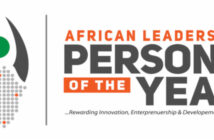Countries need to do much more to close gender gaps worldwide, according to a new OECD report.
The Pursuit of Gender Equality: An Uphill Battle presents a stark call to action, highlighting that very little progress has been made since the 2012 OECD report Closing the Gender Gap Now.
“The pursuit of gender equality must be a priority to achieve sustainable, inclusive growth for the benefit of every citizen,” said OECD Chief of Staff and G20 Sherpa Gabriela Ramos at the launch of the report in advance of the Women’s Forum taking place in Paris. “There is no reason for women to trail behind men in social, economic, and political outcomes. Countries need to do much more to reach the gender equality goals.”
In the latest survey carried out in 2012 on the pursuit of gender equality, OECD countries identified the three most important gender inequality issues: violence against women, the persisting large gender wage gap, and the unequal sharing of unpaid work. Many countries are now prioritising these issues in policy, and many are also pushing to get more women into public and private sector leadership.
Some progress has been made, the report notes. Most OECD countries are tackling workplace harassment through stronger laws and regulations. Several countries, including Australia, Germany, Italy, Japan, Mexico and the United Kingdom, have introduced measures to encourage more young girls to choose science, technology, engineering and manufacturing (STEM) and young men to study and work in health and education.
Nonetheless, gender gaps persist in all areas of social and economic life across countries, and the size of these gaps has often changed little in recent years. While today young women in OECD countries leave school with better qualifications than young men, they are less likely to study in the higher earning STEM-related fields.
Women’s labour force participation rates have moved closer to men’s rates over the past few decades, but in every OECD country women are still less likely than men to engage in paid work. When women do work, they are more likely to do it on a part-time basis, are less likely to advance to management positions, are more likely to face discrimination, and earn less than men. The median female worker earns almost 15% less than her male counterpart, on average, across the OECD – a rate that has barely changed since 2010.
Women are less likely to be entrepreneurs, and female-owned businesses tend to earn less than male-owned ones. Gender gaps tend to increase with age, reflecting the crucial role that parenthood plays in gender equality. Much more than fatherhood, motherhood typically has sizable negative effects on workforce participation, pay and career advancement. Gender inequalities pervade public life, as well: women are underrepresented in political office, holding less than one-third of seats in lower houses of national legislatures, on average, in the OECD. Affirmative action is needed but alone is insufficient to bring about gender equality. Countries also need to invest in female leadership opportunities through for example mentoring opportunities and network supports. At the same time male role models in senior management need to drive the change in gender stereotypes and norms that continue to hamper women’s access to leadership.
Clearly much remains to be done to narrow, and ultimately close, gender gaps across all countries. The report outlines not only the social but also the strong economic case for action: reducing the gender gap in labour force participation by 25% by 2025, as agreed by G20 leaders, could add 1 percentage point of growth to projected baseline GDP growth across the OECD over the period 2013-25, and almost 2.5 percentage points if gender participation gaps were halved by 2025.
Since 2013, about two-thirds of OECD countries have put in place new equal pay policies, involving greater transparency on pay with companies increasingly required to analyse and disclose their gender wage gaps. Many countries have also introduced measures to improve access to quality early childhood education and care, as well as encouraged fathers to take parental leave: several, including Canada, Japan, Korea and Poland, have increased subsidies or benefits for childcare; and others, including Norway and the UK, have introduced or expanded free childcare.
Source: OECD




